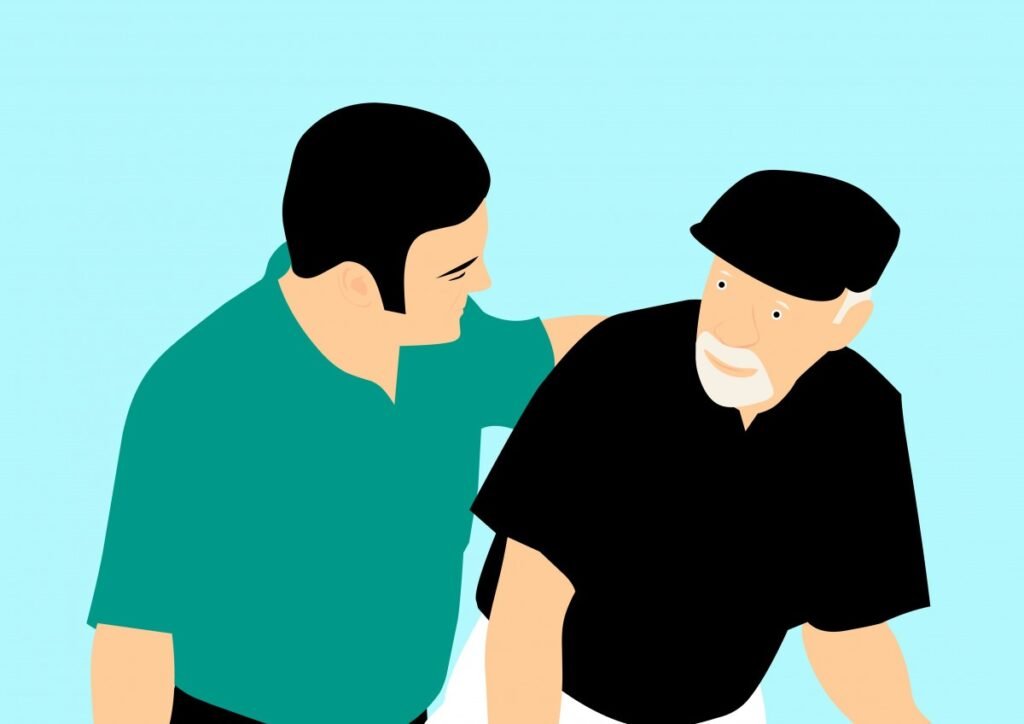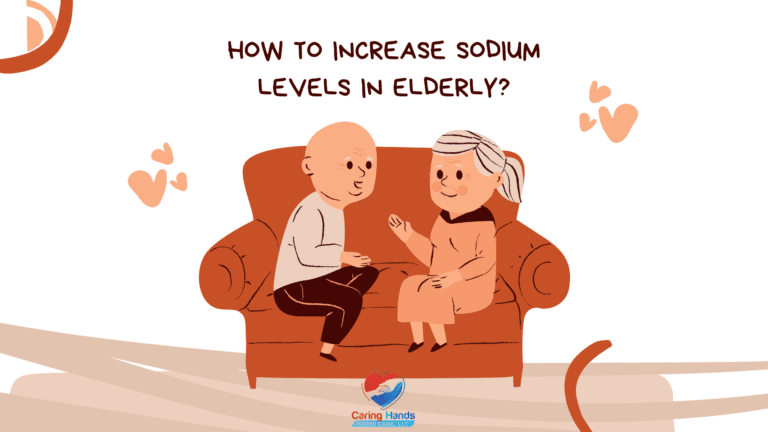Failure To Thrive In Elderly – All You Need To Know
As a person ages, a significant decline in their overall health condition is observed. This may occur due to underlying health conditions or simply due to the fact that they are getting old.
An aged person may have to struggle with the completion of his or her daily tasks and may require external assistance.
Failure to thrive is accompanied by sudden weight loss, loss of appetite, dehydration, limited physical activities, and low cholesterol. It is essential to provide your loved ones with effective care and support to make their journey with aging easier.


What Medical Conditions are Associated with Failure to Thrive in the Elderly?
The process of aging usually comes with a bunch of diseases. People may become more vulnerable to several diseases as they age. It is essential to look out for these diseases to address them accordingly.
Chronic Diseases
Certain chronic conditions such as diabetes or heart issues are more likely to occur in the late stages of life. It is essential to consult a healthcare professional and get your loved ones treated timely.
Dementia
Certain cognitive impairments such as dementia can limit a person’s ability to think rationally or logically. Old people may begin to rely on others to complete their daily tasks. These cognitive issues are progressive and may worsen with time.
Malnutrition
With an inability to swallow nutritious foods or with a low appetite, common in old people, comes the risk of malnutrition. Malnutrition can effectively decrease one’s ability to carry out daily activities successfully.


Chronic Pain
Another common aspect in old people is the presence of persistent pain. They may have to deal with a decrease in effortless mobility and may also deal with a loss of appetite.
Infections
Old people are usually more susceptible to infections. If these certain infections are left untreated, they can significantly lead to a decline in health conditions.
Cardiovascular Issues
Certain cardiovascular issues or heart diseases can affect the well-being of a senior. This can reduce the body’s nutritional and oxygen needs.
Does Dietary Factor Lead to Struggle with Surviving in Elderly?
Proper nutrition is essential to maintain the overall health and well-being of an individual. These factors can significantly impact the struggle to survive in the elderly.
Loss of Appetite
Old individuals may encounter a loss of appetite due to underlying health conditions or the side effects of certain medications. This can consequently lead to a lack of necessary nutrients.
Digestive Issues
Certain digestive issues such as constipation or malabsorption may lead to the inability to absorb nutrients from food. This can further lead to a contributing factor in malnutrition.
Weak Immune System
With poor nutrition comes a weak immune system. Having a weak immune system can make elderly individuals more vulnerable to diseases and infections, which in severe cases, can reduce the individual’s life expectancy.
Low Energy Levels
Inadequate nutrition can cause low levels of energy and fatigue. This can lead to more drowsiness and a decrease in engaging in daily life activities.
Chewing and Swallowing Difficulties
With oral problems, an old individual may struggle with chewing hard food and swallowing it. The inability to eat a well-balanced diet can lead to nutritional deficiencies.


Effect of Psychological Factors in Failure to Survive in Elderly
Psychological factors that are often ignored may play a significant role in the overall well-being of the elderly. Following are some psychological factors that can significantly impact an individual’s well-being and can lead to failure to thrive in the elderly.
Depression and Anxiety
Constant negative feelings of sadness and hopelessness can further lead to developing depression or anxiety in old individuals. This may result in a lack of self-care, low appetite, and isolation which can further lead to failure to thrive.
Loss and Grief
As a person ages, he or she may lose more people around them. The loss of parents, spouses, and friends can induce feelings of grief and profound loss. This can be an emotionally distressing situation for old people, leading to a decline in their mental and physical health.
Signs of Stress
An old individual may exhibit signs of stress. If left untreated, stress can negatively impact the cardiovascular and immune health of an elderly individual.
Families and caregivers must recognize the signs and address them without any delay.
Lack of Purpose
Elder individuals may develop a lack of purpose and meaning in their lives as they get old. These negative emotions can further lead to feelings of emptiness and contribute to a decline in a person’s overall health.
Is Social Withdrawal Related to Failure to Thrive in the Elderly?
Yes, social withdrawal is deeply connected to the inability to survive in older individuals. Social withdrawal can consequently affect the physical and mental aspects of an individual’s well-being.
Loneliness and Isolation
Social withdrawal can initiate feelings of loneliness and isolation in elderly individuals. These individuals may begin to experience stress, depression, and anxiety which can further affect the person’s overall health.
Decreased Motivation
Social withdrawal can lead to a lack of motivation in most individuals. Older people may feel reluctant to take the initiative and may also avoid engaging in self-care activities such as bathing and hygiene.
Lack of Social Stimulation
Exposure to social settings can provide cognitive stimuli which is vital for maintaining one’s cognitive health. In the absence of social interactions, an older individual may encounter a decline in their cognitive abilities.


What is the Role of Physical Activity in Failure to Thrive in Seniors?
Physical activity plays a key role in maintaining a person’s physical and mental well-being. Lack of physical activity can impact seniors adversely in the following ways.
Muscle Atrophy
Lack of physical activity can lead to muscle weakness and atrophy which can further lead to issues in mobility and struggle to perform daily life activities.
Decreased Bone Density
With a lack of physical activity and exercise, older individuals may be more vulnerable to fractures and osteoporosis. Decreased physical activity can lead to decreased bone density which may prove harmful in older individuals.
Reduced Joint Flexibility
Regular physical activity helps in maintaining joint flexibility. However, a lack of physical activity can consequently lead to joint stiffness and difficulty in moving certain body parts.
Increased Risk of Obesity
It is essential to regularly exercise or practice physical activity to prevent weight gain which may prove to be the root cause of several other diseases and illnesses.
Do Medications Have an Adverse Effect on Thriving in the Elderly?
Yes, medications, in some cases can harm many elderly individuals making it hard for them to thrive. It is essential to know their side effects to be able to address them to provide your loved ones with an effective solution.
Risk of Falls
Certain medications can induce drowsiness or dizziness which can ultimately increase the chances of falls in the elderly. These falls can lead to head injuries or other complexities.
Cognitive Impairment
Certain medications can contribute to cognitive decline and memory issues in elderly people. These medications can affect a person’s ability to recall events, think clearly, or participate in daily activities, ultimately inducing feelings of confusion or frustration.
Drug Interactions
Elderly individuals may take multiple medications for various health conditions. In some cases, two different medications may interact with themselves, leading to issues, and impacting the effectiveness of treatment.
Psychotropic Medications
Certain medications such as antipsychotics or antidepressants, used for psychological symptoms may have adverse emotional effects.


What Warning Signs to Look Out for Elderly People at Risk?
It is essential to look out for warning signs that can potentially affect elderly individuals. Some of them are given below
Changes in Physical Functioning
Certain changes in physical functioning such as difficulty with maintaining balance, reduced mobility or strength, and a sudden weight loss can be a warning sign for families to pay attention to.
Changes in Cognitive Functioning
Elderly individuals may experience forgetfulness or memory loss. They may find it difficult to concentrate or focus on something. Caregivers need to identify such warning signs or address them timely.
Sleep Disturbances
Certain altered sleep patterns such as insomnia, daytime sleeping, or excessive sleeping hours may indicate a problem with an individual’s health conditions.
Vision or Hearing Difficulties
A decline in a person’s vision and hearing abilities may suggest an underlying issue that should be addressed without further delay.
Communication Difficulties
An elderly individual may find it difficult to express their thoughts verbally. Sudden changes in language and understanding abilities should be taken seriously and immediately addressed.
What Strategies Can Be Used to Prevent Failure to Thrive in Elderly?
Providing an improved quality of life to your parents or grandparents is a thoughtful and considerate thing to do. With certain strategies, addressing physical, mental, and social aspects of life, one can prevent failure to thrive in the elderly.
Regular Follow Ups
It is essential to provide elderly people with regular check-ups to monitor their health conditions or for the early detection of emerging health concerns.
Fall Prevention
Modify the home environment to prevent risks and encourage the use of certain assistive equipment if required.
Mental Health Support
Address the elderly’s mental health by providing regular mental support. In case of the presence of a mental health condition, address and treat it accordingly.
Promote Physical Activity
Promote regular activity according to the individual’s capabilities. Focus on exercises that promote strength, flexibility, and balance.
Dental Checkups
Schedule regular dental examinations and checkups to address any oral health issues.
Promote Independence
Promote independence in elderly individuals by providing them with adaptive devices and assisting them only when they require it.
Conclusion
As one ages the effectiveness in their daily activities suffers a decline. Families and caregivers should take care of their loved ones by providing support in every aspect of life. Early recognition and intervention of diseases can significantly promote a successful aging process. Through collaborative efforts between healthcare professionals, families, and caregivers, a nourishing environment can be built for those who need it.
FAQs
Can family and friends do simple things to help their loved ones?
Yes, families and friends can help elderly individuals by paying regular visits or engaging in meaningful conversations, assisting them in combating loneliness.
How can caregivers support elderly individuals with failure to thrive?
Caregivers can provide emotional support, assistance with daily activities, and implement health care interventions, ultimately enhancing their well-being.
What are the behavioral changes associated with failure to thrive in elderly people?
Elderly individuals may exhibit certain behavioral changes such as social isolation, decreased motivation, decline in self-care habits, and no visible interest in certain activities.
What basic treatments can be provided to seniors experiencing failure to thrive?
Basic treatments for seniors can include addressing underlying issues, providing nutritional support, and promoting physical and mental health interventions to enhance the standard of living of elderly individuals.
How does failure to thrive have an impact on the quality of life of the elderly?
Failure to thrive can lead to physical and cognitive decline, social isolation, and more reliance on other people for daily activities. Such individuals may also not be able to engage in meaningful conversations and activities.




![Sudden Excessive Sleepiness In The Elderly [Causes & Solutions]](https://caringhandshomecarefl.com/blog/wp-content/uploads/2023/12/elderly-sleep-disorders-therapy-768x512.jpg)


